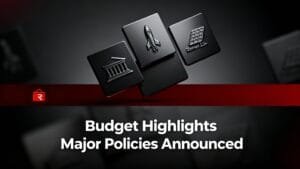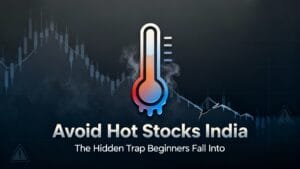Trading has become easier for people wanting to grow their wealth. But, starting as a beginner in 2025 can be confusing. What tools and strategies are key for a beginner trader to succeed? This guide will show you how to start trading and feel confident in the financial markets.
Table of Contents
Key Takeaways
- Explore popular trading platforms like Robinhood, E*TRADE, and Webull for beginner-friendly features.
- Start with a small investment that you can afford to lose to build confidence in your trading skills.
- Understand key trading concepts like stocks, bonds, market orders, and diversification before investing.
- Utilize risk management tools like stop-loss and take-profit orders to protect your capital.
- Embrace the long-term nature of trading, as patience is a crucial component of success.
Understanding the Fundamentals of Trading
Starting your trading journey means learning key concepts. Trading is about buying and selling things like stocks and currencies to make money from price changes2. We’ll look at different markets and important terms for new traders.
What is Trading and How it Works
Trading is swapping one thing for another to make money. Traders use their knowledge of markets and economics to make smart choices2. They aim to buy low and sell high to profit.
Different Types of Financial Markets
Key Trading Terminology for Beginners
Knowing the basics of trading and markets prepares you for your journey. It opens doors to exciting trading opportunities.

“Understanding the markets and the language of trading is the first step towards making informed investment decisions and achieving long-term success.”
Essential Tools and Platforms for Trading Success
| Platform | Key Features for Beginners |
|---|---|
| Robinhood | Commission-free trading of stocks, ETFs, options, and cryptocurrencies4 |
| Webull | Access to stocks, ETFs, options, and cryptocurrencies, real-time market data, and educational resources4 |
| E*TRADE | Wide range of investment options like stocks, ETFs, mutual funds, and bonds, but charges commissions on stock and options trades4 |
| TD Ameritrade | Commission-free trading on stocks, ETFs, and options, user-friendly apps, and educational platform4 |
| Fidelity Investments | $0 trades on stocks, ETFs, and options, robust research and education resources4 |
When picking an4 online broker for day trading, look at commissions & fees, platform efficiency, and app availability. Also, consider the educational resources they offer.

How to Start Trading as a Beginner in 2025
Setting Clear Investment Goals
Before you start trading, set clear goals for both short and long terms. This helps you stay focused and make smart choices that match your financial plans.
Determining Your Investment Capital
Choosing the Right Trading Account
| Trading Account Type | Advantages | Disadvantages |
|---|---|---|
| Regular Brokerage Account | Flexibility, wide range of investment options | Limited tax benefits, may require higher minimum investment |
| Retirement Account (e.g., 401(k), IRA) | Tax-advantaged growth, long-term investment horizon | Limited access to funds until retirement, restrictions on withdrawals |
| Managed Account | Professional management, diversification, access to advanced strategies | Higher fees, less control over investment decisions |
“Successful trading requires a combination of clear goals, prudent risk management, and a disciplined approach. Start small, learn continuously, and embrace the journey to become a confident and proficient trader.”
Risk Management and Trading Psychology
Psychological factors like Fear of Missing Out (FOMO) and Loss Aversion can affect our trading9. To fight these, we should risk only 1-2% of our capital per trade9. Diversifying our portfolio helps avoid big losses9. Also, using stop-loss orders is crucial to limit losses if the market goes against us9.
FAQ
What is trading and how does it work?
Trading means guessing how an asset’s price will change without owning it. Traders can play in many markets, like stocks, forex, and commodities. They use platforms to bet on price movements, hoping to make money.
What are the different types of financial markets for trading?
There are several markets for trading. Stock trading deals with company shares. Forex is about exchanging currencies. Commodities involve natural resources, and index trading speculates on asset groups.
What are the key trading terms beginners should know?
Beginners should learn about leverage, margin, and long/short positions. These terms help new traders make smart choices and handle risks.
What kind of tools and platforms are essential for successful trading?
Good trading needs reliable tools and platforms. Top platforms offer real-time data, charts, and order tools. IG Academy provides courses for all levels. Analytical tools help spot trends. Demo accounts let traders practice without risk.
How should a beginner approach starting to trade in 2025?
Beginners should set clear goals and know their risk level. Understand your financial situation and goals. Pick a trading account that fits your needs. Start small and grow your investment as you learn.
What are the key aspects of effective risk management in trading?
Managing risk is key to trading success. Limit losses to 1-2% of your account. Use stop-loss orders and stay disciplined. Review your trades to get better. Know how emotions like fear and greed affect you. Keep a trading journal to track your progress.






